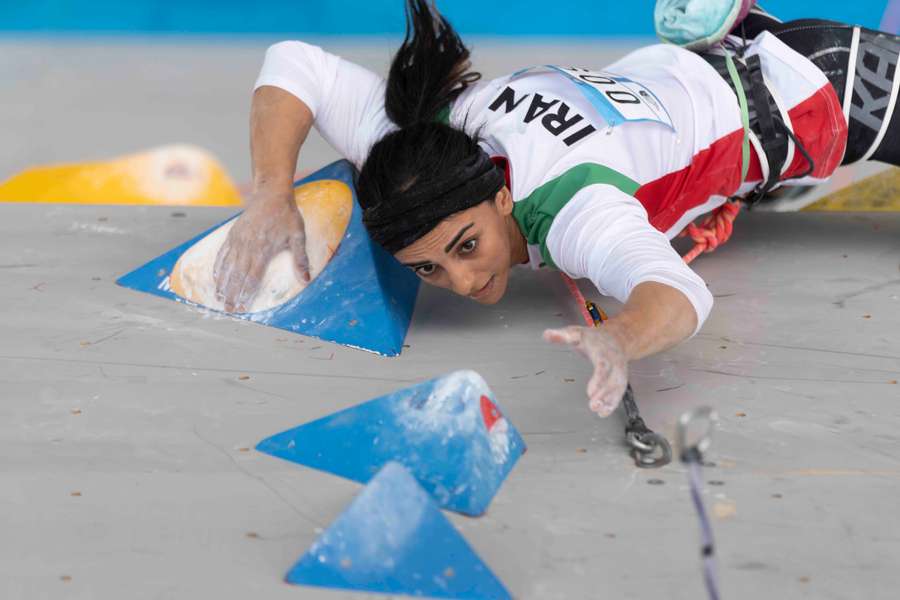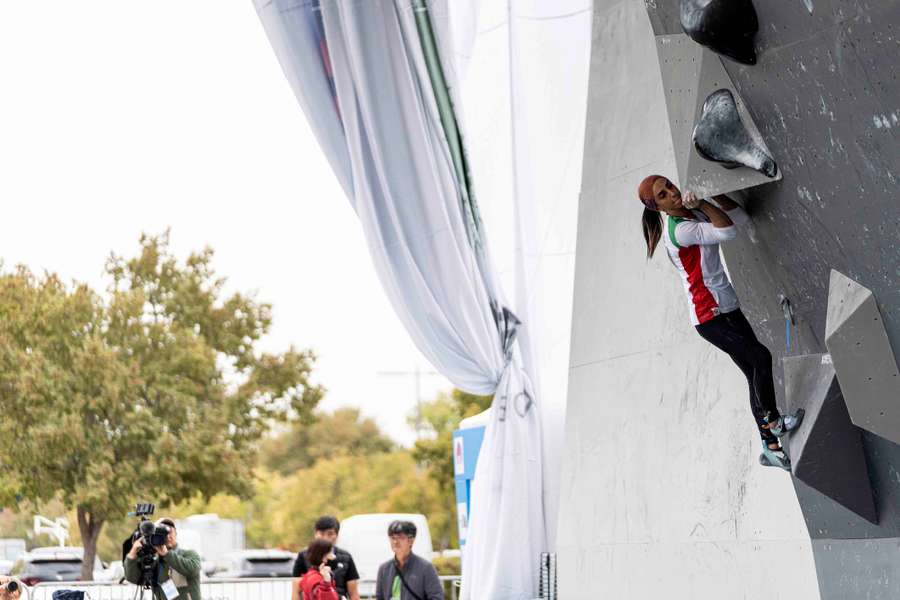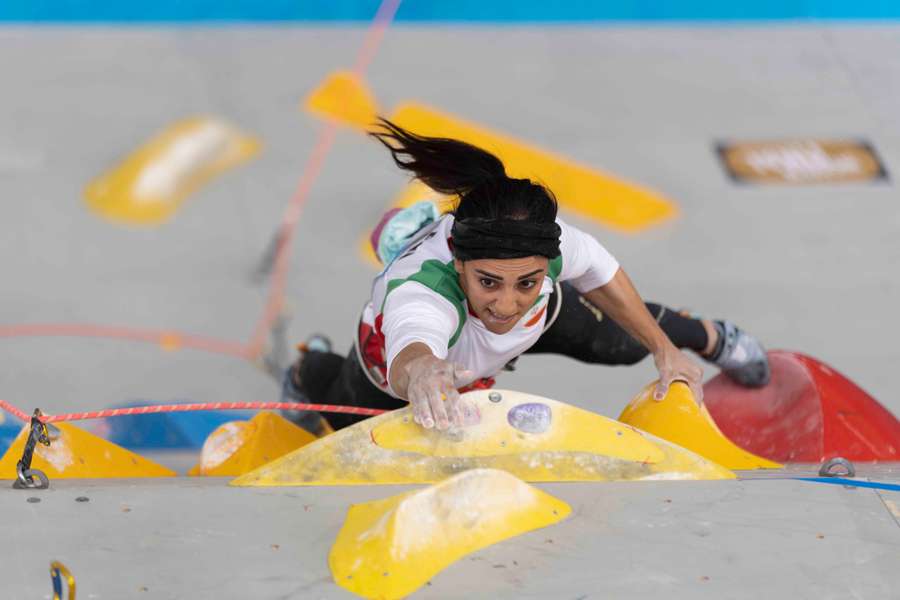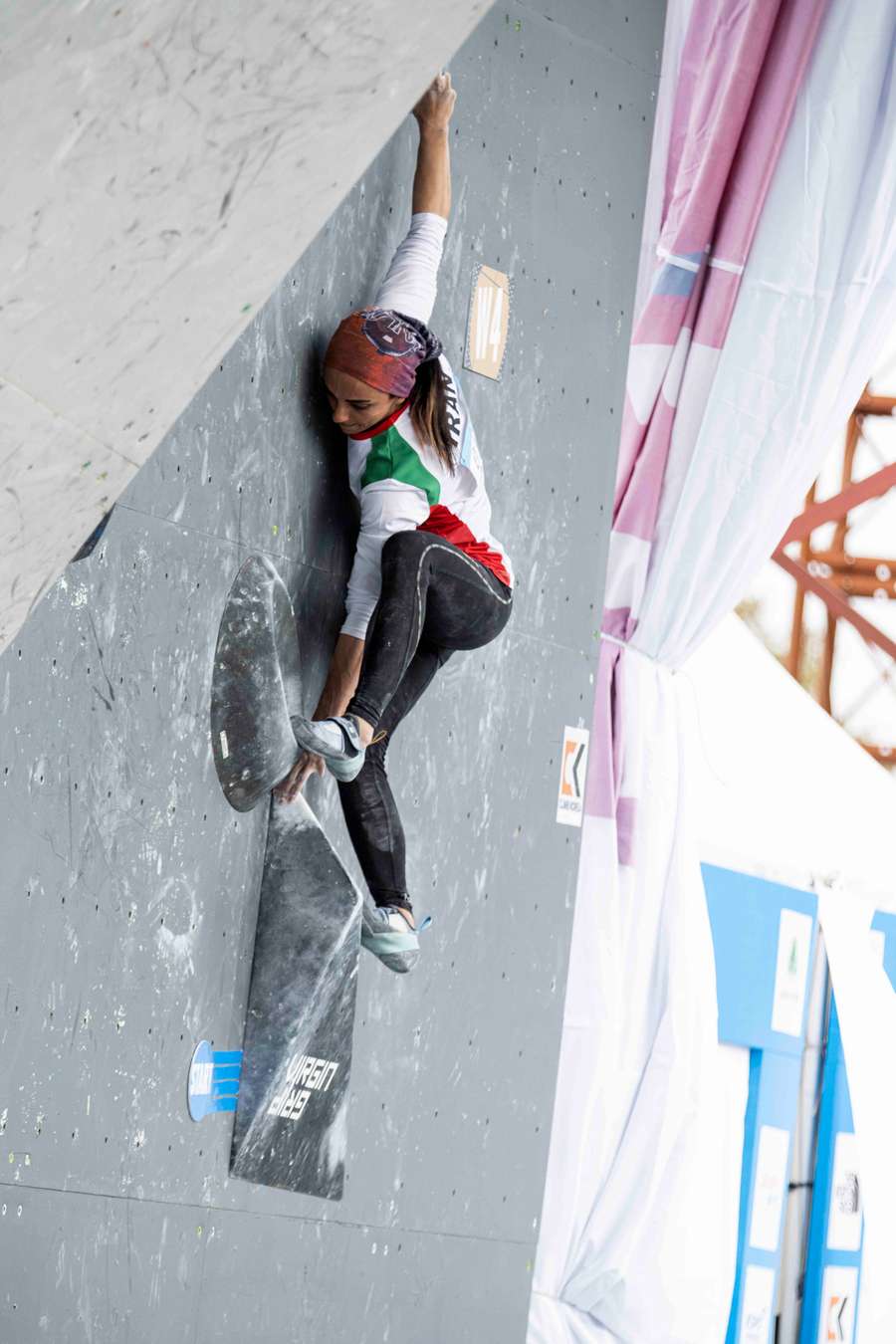Concern mounts for Iranian climber who competed without hijab

Rekabi, 33, in her first comment since the event on Sunday apologised on Instagram for the "concerns" caused and insisted that her bare-headed appearance had been "unintentional".
She had come fourth representing Iran in the boulder and lead combined event at the Asian Championships in Seoul.
In the initial bouldering discipline her head was covered with a bandana but in the later lead climbing, scaling a high wall with a rope, she wore only a headband, the stream posted by the International Federation of Sport Climbing (IFSC) showed.
This was in breach of the Islamic republic's mandatory dress rules of compulsory headscarf for women which also apply to all female athletes, even when competing abroad.
The gesture came one month into protests in Iran over the death of Mahsa Amini, arrested by Tehran police for allegedly violating the dress rules, which have transformed into a movement against the obligatory hijab and the Islamic republic itself.

Supporters of the protests on social media described Rekabi as a "hero", posting images of her climbing up the letters of the protest slogan "Woman. Life. Freedom."
Nothing had been heard since the event from Rekabi until a story was published Tuesday morning on her Instagram account where she has over 200,000 followers.
"I firstly apologise for all the concerns I have caused," the statement said.
Due to the timing and sudden call to begin the climb "my hijab unintentionally became problematic", it said.
"I am currently on my way back to Iran alongside the team based on the pre-scheduled timetable," it added.
Pressure in Seoul
However, there was alarm over under what circumstances the statement had emerged after unconfirmed reports suggested she had been pressured by Iranian officials in South Korea.
BBC Persian quoted an unnamed source as saying that friends had been unable to contact her and the team had left their hotel on Seoul on Monday, earlier than the scheduled departure date of Wednesday.
It said her mobile phone and passport had been taken from her.
Meanwhile news website Iran Wire reported that the head of Iran's climbing federation had "tricked" her into entering the Iranian embassy in Seoul and that she would then be taken directly to the airport.

It said the federation chief had promised her safe passage to Iran if she handed over her phone and passport.
The Iranian embassy in Seoul, however, issued a statement to AFP denying "all the fake, false news and disinformation regarding" her situation and adding Rekabi had left South Korea along with her teammates on Tuesday.
The spokesperson for the UN office of the high commissioner for human rights, Ravina Shamdasani, said the UN was "aware" of the case and concerns were being raised with the Iranian authorities.
"Women should never be prosecuted for what they wear. They should never be subjected to violations such as arbitrary detention or any kind of violence with regards to what they wear," she said in Geneva.
"We will be following this case very closely."
Iran Wire described the text of Rekabi's Instagram statement as "similar to the forced confessions common in the Islamic republic" which is accused by activists of coercing people into making such statements of contrition on television or social media.
The statement has been widely quoted in media inside Iran, including by the semi-official ISNA news agency.
Taboo-breaking
Rekabi is believed to be the second Iranian woman to have appeared in competition without a headscarf after boxer Sadaf Khadem appeared bare-headed in a bout in France in 2019. Khadem did not return to Iran and now lives in exile in France.
Sport has become a hugely sensitive arena during the protests, with several prominent Iranian female athletes expressing support for women's rights.
Famous footballers have also been caught up in the crackdown with former international player Hossein Mahini arrested and the world's ex-top scorer Ali Daei having his passport confiscated. Daei's document was returned while Mahini was reportedly freed on bail.
Iran's Fars news agency, which reflects hardline views, published an editorial Tuesday critical of Rekabi but avoided mentioning her by name.

It asked why "Western, Zionist and Saudi" media had not paid attention to victories by Iranian women wearing headscarves in the last days in athletics and weightlifting but instead "highlighted the performance of a girl with unconventional behaviour".
Rights groups have long accused Iran of pressuring people deemed to have violated its laws into so-called confessions either on television or social media.

